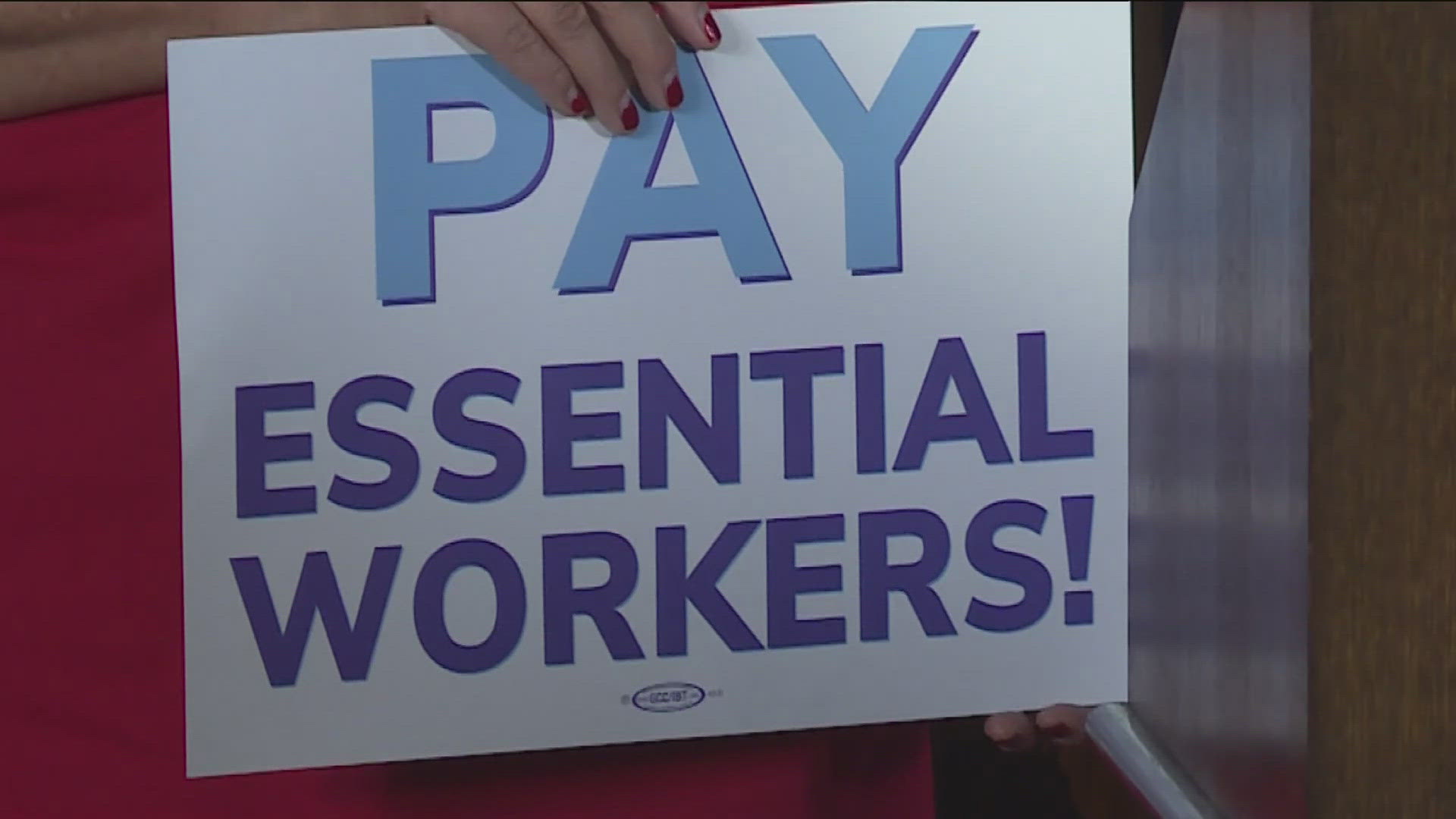ST PAUL, Minn. — The Minnesota Frontline Worker Pay Program was enacted in 2022 as a way to reward those who toiled on the front lines of the COVID pandemic so state residents could get needed medical care, buy groceries, have their children cared for and have additional life necessities filled.
Originally intended to provide eligible workers up to $1,500 in compensation for putting themselves at risk to serve their communities, the Frontline Worker Pay Program ended up with a maximum benefit of $487.45 due to an unanticipated number of applicants. More than a million people were approved to receive the reward.
More than two years later, an audit by the Office Of The Legislative Auditor released Tuesday found significant problems with the program, including paying workers who were ineligible.
Looking into the Frontline Workers Pay Program, the Minnesota Legislative Auditor's Office could only verify 58.9% of the payments went to people who deserved them.
"Now, to be clear this does not mean 40% of paid applicants were ineligible," Legislative Auditor Judy Randall explained.
Auditors say a majority of those unverified applications are likely legit, but they simply don't have enough information to verify those payments did in fact go to Minnesotans who were eligible for the program.
However, auditors did random samplings of several hundred applications and they discovered several recipients who were clearly ineligible
"We identified paid applications that had clear fraud indicators and we identified paid applications for which we could clearly determine the applicant was not eligible, for example applications submitted by people who had died before the application window opened," Randall said.
Besides fraud, auditors also found several applicants who were ineligible because they worked from home, didn't live in Minnesota, or didn't work enough hours to meet the requirements.
Auditors released three scenarios based on their projections, the most conservative scenario suggests around 0.2% of the payments went to ineligible recipients, and the most aggressive scenario suggests 9.1% of the payments went to ineligible recipients.
If the latter scenario is true, auditors say that means more than $45 million was paid to people who ineligible to receive payments.
Commissioners at the Department of Revenue and the Department of Labor dispute the numbers from the auditor's office, and they argue the fault doesn't lie with them, but state lawmakers, who created a flawed program that focused more on getting money out fast over getting money to the right people.
In the cases of fraud, the Legislative Auditor's Office has referred those cases to local law enforcement and the FBI.
Auditors are also encouraging the Departments of Revenue and Labor to go back and look at these applications they couldn't verify and to recoup any payments from people who didn't deserve them.
Watch more local news:
Watch the latest local news from the Twin Cities and across Minnesota in our YouTube playlist:

